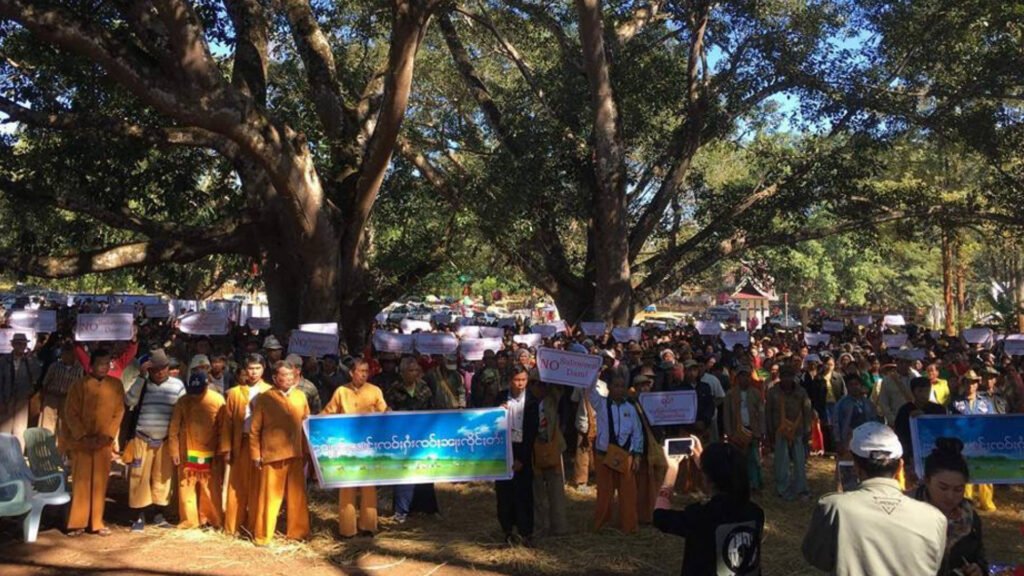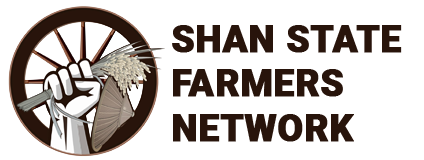About Us

Shan State Farmers Network has been actively operating in Nam Kham northern Shan State since 2010. We are a community-centered non-governmental organization dedicated to advocating for the safeguarding of both the environment and human rights.
Our core commitment lies in standing united with local communities and offering them support. We address the challenges posed by large-scale projects that detrimentally affect farmers and the environment, such as dam construction and coal mining. Our focus extends to providing assistance to indigenous populations negatively impacted by mining and highway development.
Our overarching goals are as follows:
- To enable local residents to cultivate their own lands without constraints.
- To facilitate unhindered trading opportunities.
- To uphold the rights of ethnic communities residing in Shan State as the original custodians, bestowing them with the authority to manage and make decisions pertaining to the natural resources within Shan State.
We employ a range of activities to achieve these aims. These include organizing press conferences, conducting capacity-building workshops, facilitating prayer gatherings, offering training to enhance the skills of local inhabitants, aiding in the coordination of local events, spreading awareness about the prevailing political landscape, and disseminating information through published reports and video recordings. Additionally, we foster interfaith connections and engage in collaborative endeavors with civil society organizations that center on ethnicity, all with the intention of fostering harmonious coexistence among diverse ethnic groups.

Donation
We provide essential supplies such as rice, oil, salt, and food products, along with financial aid, clothing, and women's accessories, particularly in areas that are inaccessible for various reasons.

Training Initiatives
To help locals appreciate the worth of their natural resources, the training covers the creation of an array of soaps using indigenous ingredients like shikakai, tomato, lime, honey, and aloe vera. Participants learn the art of crafting natural soap with local components such as tea leaves. The training encompasses a range of soap varieties, including bath soap, shampoo, and laundry soap, ensuring comprehensive knowledge transfer.

Annual Exchange
Notably, representatives from various ethnic groups residing in Shan State, including Dhanu, Yung Lai, Kachin, Innthar, Lahu and Akha, participate actively in these deliberations. The conference fosters meaningful connections among attendees, facilitating ongoing engagement and cooperation among these diverse farming communities.

Ordination
These gatherings also pay tribute to farmers from Shan State who selflessly gave their lives for the greater good. These ceremonies honor their courage and dedication.
A pivotal annual prayer falls on March 14th, recognized as International Rivers Day. This day unites individuals worldwide in solidarity with local communities and pristine rivers.The aim is to ensure the well-being of rivers.
Throughout these rituals, reverence for local traditions and beliefs is upheld. A distinctive fortune-telling ceremony gauges the fate of land, water, and forests. This practice acts as a shield, guarding these natural assets against threats like mining and dam construction.
For safeguarding forests, a tree renewal rite is observed. This fortifies forests against hazards such as coal mining.
The Shan State Farmers' Network, along with close companions and kin, coordinates gatherings to support those who sacrificed their lives for Shan State farmers. Their intent is to honor these heroes and draw insights from prior missteps, particularly concerning the adversities posed by extensive projects. The objective is to chart a path toward wiser decisions for the future.

